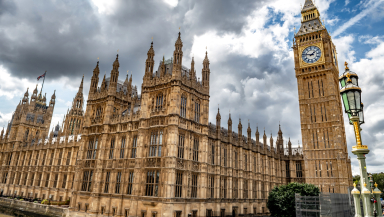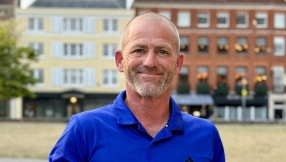
With just over a week to go until the assisted suicide bill reaches its House of Lords second reading debate, campaigners have urged supporters and believers to pray and to make their voices heard.
Although the proposal passed the House of Commons earlier this year, assisted suicide must still make its way through the House of Lords and receive royal assent before it can become law.
Traditionally, the Lords do not significantly oppose government bills that fulfil election promises. However, such a convention does not apply in the case of the assisted suicide bill, which is being brought as a private member's bill by Labour MP Kim Leadbeater, and was not in Labour’s manifesto.
Indeed, the Cabinet itself is split on the issue. Notably the Health Secretary, Wes Streeting, voted against the bill, citing concerns that the NHS’ budget could not support additional services and that inadequate palliative care may inadvertently herd people towards the suicide option.
Ahead of the House of Lords Second Reading debate on 12 September, campaign group Care Not Killing has urged supporters to write to members of the upper house to “make your message heard”.
The group recommended physical letters, rather than emails, for the practical reason that many peers do not have publicly available email addresses and even those that do may not monitor them.
Meanwhile the Catholic Church has reiterated its opposition to the bill and has also called upon believers to lobby the House of Lords. It asking people to pray.
Archbishop Sherrington said that the “unworkable” bill could result in care homes and hospices shutting down, dealing an additional blow to Britain’s already much criticised palliative care system.
By making assisted suicide a right, it would also become an obligation for healthcare providers. Those providers with moral objections could well find themselves having to close down or face being forced to go against their conscience. Similar concerns have been raised about individual doctors, the Archbishop noted.
Archbishop Sherrington said, “Many doctors will effectively be unable to opt out of cooperating with the procedure, because of the duty to direct patients to information and to where they can have a preliminary discussion.”
The Archbishop further called for the prioritisation of palliative care for the terminally ill and echoed Wes Streeting’s concerns that inadequate palliative care would effectively funnel people towards suicide.
"Priority must be given to the provision of palliative care which, though excellent where provided, is patchy in terms of its provision around the country," he said.
"The legalisation of assisted suicide will inevitably further undermine the resourcing of palliative care. Where such provision is absent, individuals will inevitably feel pressured to end their lives."
He added, "We continue to call for prayer and action. I urge you to contact members of the House of Lords and in particular share your personal or professional experience on this important matter."













